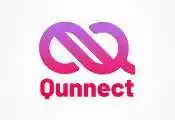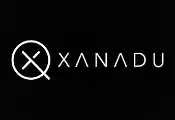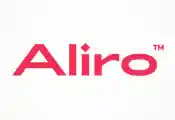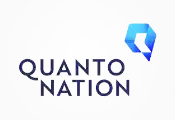D-Wave Highlights Quantum Optimization Customer Growth and Introduces Expanded Offering to Accelerate Adoption and Deployment
PALO ALTO, Calif., March 31, 2025 -- D-Wave Quantum Inc. (“D-Wave” or the “Company”), a leader in quantum computing systems, software, and services, today announced several initiatives designed to increase adoption and deployment of its commercial quantum optimization offering. At the Company’s Qubits 2025 user conference, D-Wave introduced updates to its hybrid quantum solvers and expanded use cases, reflecting increased demand for quantum optimization solutions from end users,independent software vendors (ISVs), system integrators (SIs), and resellers.
“Organizations are increasingly experiencing shortcomings with legacy computing solutions in addressing today’s complex optimization problems,” said Dr. Alan Baratz, CEO of D-Wave. “This is driving the creation of a new market category—quantum optimization, which leverages the power of quantum computing to address these real-world problems. We’re excited to showcase technical advances and customer success stories at Qubits 2025 that reinforce how we are helping organizations realize the value of quantum today.”
Hybrid Quantum Solver Now Supports Continuous Variables
D-Wave announced today that its hybrid quantum nonlinear (NL) solver now supports continuous variables with linear interactions. This added capability expands the range of real-world problems that the NL solver can address, including support for new use cases such as budget allocation and resource distribution, where decisions impact each other dynamically. Models that previously could only be addressed with the constrained quadratic model (CQM) solver can now also be submitted to the NL solver, marking a major step forward in its ease of use and applicability.
Applying Quantum Optimization to New Use Cases
Based on growing customer demand, D-Wave is expanding its list of quantum optimization use cases, building on previously announced applications including workforce scheduling, production scheduling and logistics routing. By leveraging advanced quantum algorithms, D-Wave is helping customers maximize efficiency, reduce costs, and drive better outcomes in key operational areas. The new use cases include:
- Offer allocation: Companies with rebate programs, incentive plans, and other promotional offers can leverage D-Wave’s annealing quantum computing solutions to strategically distribute offers, balancing budget constraints with historical data insights to achieve higher acceptance rates and a better return on investment.
- Portfolio optimization: Financial institutions can use D-Wave’s quantum optimization technology to refine investment strategies, reduce transaction costs, and maximize returns—all while accounting for constraints like regulatory compliance and risk tolerance.
- Maintenance repair operations (MRO) optimization: D-Wave is exploring the benefits of quantum optimization in MRO logistics, helping businesses minimize the time and cost associated with critical maintenance and repair processes spanning a variety of industries and applications in manufacturing, supply chain and more.
“Improving the process of dynamically optimizing portfolios with changing macroeconomic conditions is a critical yet highly complex challenge,” said Escolástico Sánchez Martínez, head of quantum at BBVA. “We’re exploring the combination of quantum optimization and machine learning to address this, with the goal of identifying more robust portfolios for our clients that balance risk and ultimately increase their returns on investments. This proof-of-concept is being developed with the full support and commitment of BBVA’s CIB Global Markets and BBVA Asset Management’s Asset Allocation and Investment Strategies teams.”
Quantum Optimization Adoption Increases to Address Complex, Real-World Problems
Adoption of D-Wave’s quantum optimization technology continues to grow across end-users, ISVs, SIs and resellers. At Qubits 2025, many organizations will share how they are using D-Wave quantum optimization technology to address computationally complex problems including Davidson Technologies, NTT DOCOMO Inc., Pusan National University, QuantumBasel, SAS, Staque and University of Southern California.
At Qubits 2025, NTT DOCOMO Inc., Japan’s largest mobile phone operator with over 90 million subscriptions, plans to discuss its deployment of a D-Wave hybrid-quantum solution in production to optimize mobile network performance. Using D-Wave’s annealing quantum computing solutions, NTT DOCOMO Inc. found that it can reduce congestion at base stations by decreasing paging signals during peak calling times by 15%, potentially leading to increased efficiencies and lowered infrastructure costs.
“We’ve seen firsthand the benefits that quantum optimization can bring to operational performance,” said Takatoshi Okagawa, director of research and development strategy at NTT DOCOMO. “Together with D-Wave’s hybrid quantum technology, NTT DOCOMO is identifying new ways to enhance network efficiency, which is critical for customer satisfaction and for maintaining high-quality service without additional infrastructure investments.”
By partnering with D-Wave, organizations can position themselves at the forefront of quantum innovation. For example, D-Wave and Ford Otosan, a joint venture between Ford Motor Company and Koç Holding in Turkey, today announced that the vehicle manufacturer has deployed a hybrid-quantum application in production, streamlining manufacturing processes for its Ford Transit line of vehicles. The application, which uses D-Wave’s annealing quantum computing technology, has improved vehicle production sequencing at Ford Otosan, a powerful demonstration of quantum computing’s real-world impact in automotive manufacturing.




































